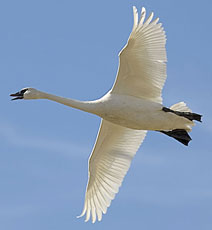Easter Sunday
For a number of years I have shared a Mary Oliver poem each Easter. I have noted that, although Oliver is not an overtly religious poet, many of her poems reenact the drama of earthly suffering redeemed by moments of grace.
Today I share Oliver’s “The Swan,” however, which concludes with a glorious epiphany. First, however, I quote from Darcia Navarez’s Neurobiology and the Development of Human Morality, recommended to me by my wife. In a later post I will be exploring what Navarez has to say about literature’s role in that development, but today I note her emphasis on nature.
To fully develop a sense of morality and “foster a good life for self and others,” Navaez says that one should, among other things, “nurture ecological attachment.” She recommends a “nature bath” as “restorative and rejuvenating”:
Reentering nature can dislodge an I-ego focus, or even depression and anxiety, in which people become caught. In the indigenous view, Nature is a companion, a friend, who needs respectful attention and encouragement through song, dance, and awareness, but who also responds with what is needed. The natural world will attend to the traumatized if they prepare themselves for the signs. Gazing at the vastness of a night sky full of visible stars (away from light pollution), taking in the ocean, or camping in winter snow can shift one to a more holistic perspective (P. Houston, “A Blizzard under Blue Sky”). Even for the traumatized, Nature can provide the bridge to healing (D. Jensen, A Language Older than Words). Bill Plotkin (Soulcraft: Crossing into the Mysteries of Nature and Psyche) describes how one can craft the soul in response to the universal spirit by letting go into Nature.
All of this Oliver understands at her core, and Navaez not surprisingly quotes her at one point. The last line of “Swan” is probably an allusion to Rilke’s remarkable poem “Arachaic Torso of Apollo” in which the poet, after gazing entranced at the statue, concludes, “You must change your life.”
Which sums up the Easter message. Seeing the swan is like the women suddenly beholding Jesus in the garden. After such a moment, nothing can ever be the same again.
Happy Easter.
The Swan
By Mary Oliver
Did you too see it, drifting, all night, on the black river?
Did you see it in the morning, rising into the silvery air –
an armful of white blossoms,
a perfect commotion of silk and linen as it leaned
into the bondage of its wings; a snowbank, a bank of lilies,
biting the air with its black beak?
Did you hear it, fluting and whistling
a shrill dark music – like the rain pelting the trees,
like a waterfall
knifing down the black ledges?
And did you see it, finally, just under the clouds –
a white cross Streaming across the sky, its feet
like black leaves, its wings like the stretching light
of the river?
And did you feel it, in your heart, how it pertained to everything?
And have you too finally figured out what beauty is for?
And have you changed your life?

One Trackback
[…] to Darcia Narvaez’s Neurobiology and the Development of Human Morality, which I referred to in my Easter post on Mary […]